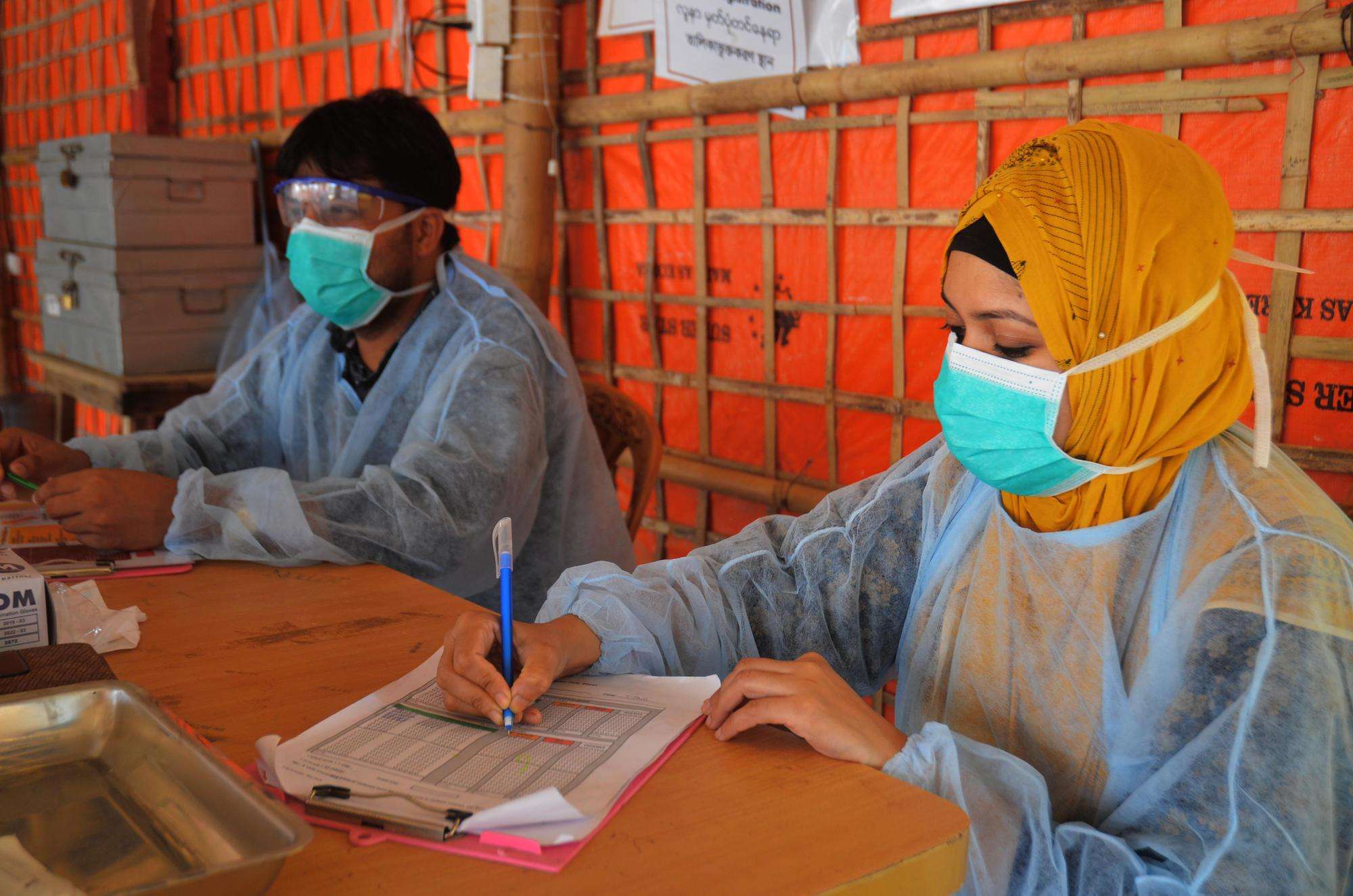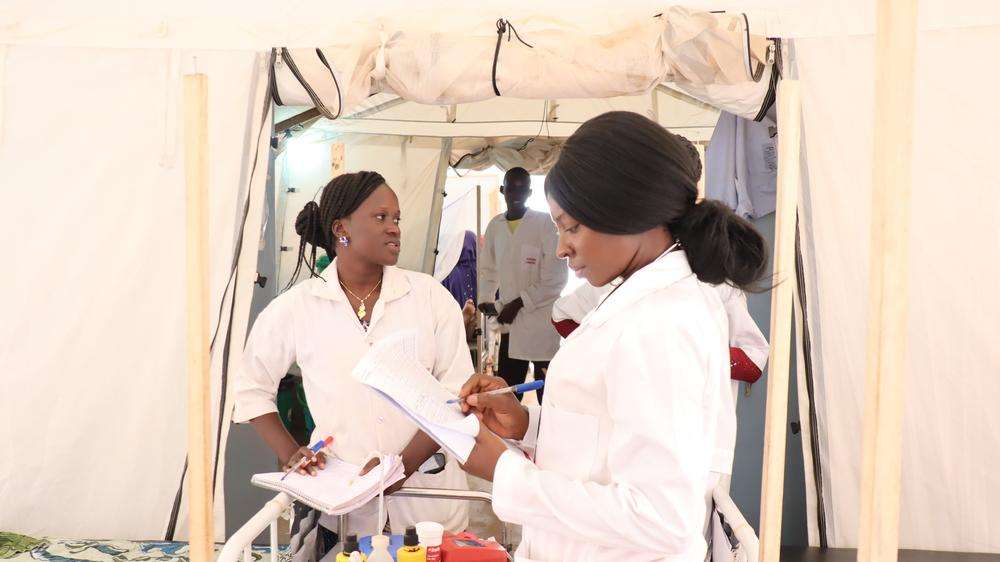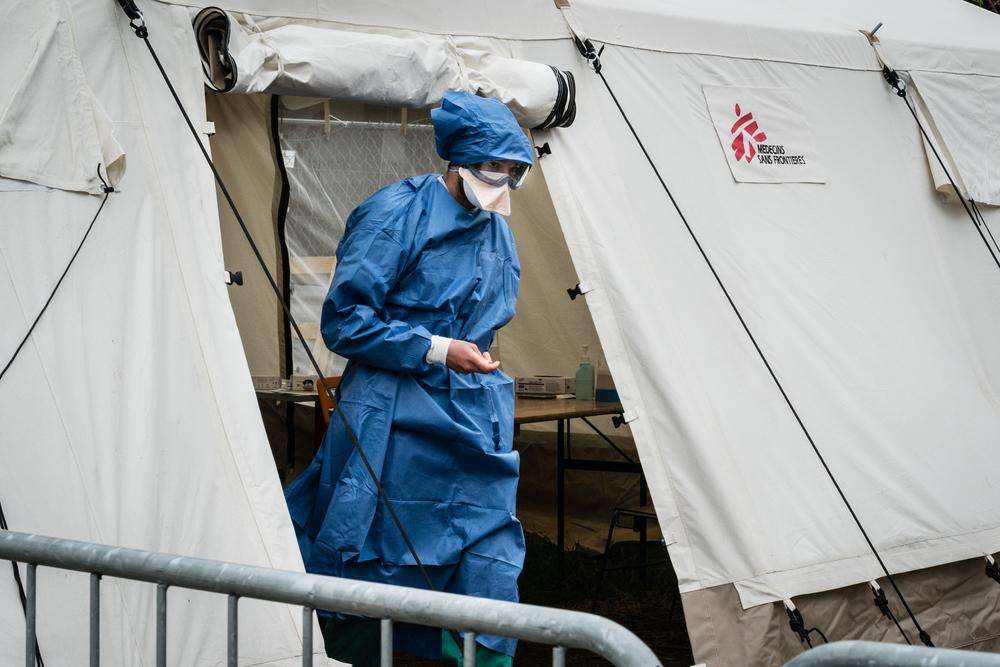This article was originally published in SBS Dateline Australia.
Bangladesh, one of the world’s most densely populated countries, is also home to the world’s largest refugee camp. Across the Cox’s Bazar area of southeastern Bangladesh, nearly one million Rohingya refugees who fled targeted violence in neighboring Myanmar now live in overcrowded, unsanitary camps. As the novel coronavirus pandemic spreads through Bangladesh, Doctors Without Borders/Médecins Sans Frontières (MSF) country representative Paul Brockmann reflects on the current situation for Rohingya refugees, and the medical and logistical challenges COVID-19 will pose to the medical humanitarian response.
Running medical activities in the world’s biggest refugee camp is challenging enough at the best of times. Maintaining these amid the biggest global health crisis of our time is nothing less than Herculean.
MSF has been rapidly scaling up our facilities to respond to COVID-19 in Bangladesh, with isolation beds available in our projects in Cox’s Bazar district. We have rolled out tailored COVID-19 training for all staff, on everything from basic infection prevention and control measures to protocols on managing patients with COVID-19. An effective medical response to COVID-19 requires more than isolation beds, however. We need sufficient staff and medical supplies to protect them and to treat patients, to ensure continuity of care for our other patients, and to ensure effective community engagement and trust.
Countering misinformation
One of the immediate impacts of the pandemic has been the erosion of trust. Bangladeshi and Rohingya people are understandably frightened. Rumors and misinformation are rampant, and this is endangering people’s access to care. Tragically, one widely believed rumor amongst Rohingya refugees is that if they are found to have COVID-19, they will be taken from their families and killed.
These fears are keeping people in need of essential (non-COVID-19) treatment away from clinics. Over the last few weeks, we have seen a stark decline in patient numbers. Our facilities have emptied; we are seeing half the number of patients we would normally.
Before COVID-19, our Kutupalong hospital normally saw 80 to 100 patients a day for wound dressings—many for chronic wounds, which need regular cleaning and dressing every two or three days to prevent infection. At present, our medical staff are only seeing around 30 of these patients a day. Without treatment, dressings are likely to become soaked and dirty, risking infection, which can lead to sepsis and possibly even death.
Community engagement and empowerment
Lessons from other outbreaks have taught us that it is crucial to involve and educate communities, to ensure they understand and feel empowered to protect themselves, tackle rumors, and reduce fears.
MSF has extensive health promotion teams, who work with their communities to share advice on how to stay safe and prevent COVID-19 and other health issues. To avoid gathering people in groups, we have had to be creative with sharing these messages: Our teams go house-to-house, speaking with individual family members. Given the internet restrictions in place, we have made short videos for people to share over Bluetooth. We are also speaking to community leaders and imams, to help share messages by word of mouth from trusted figures. In addition, we are organizing tours of our isolation facilities to explain the treatment and isolation process and build trust.
Much of the global health advice for COVID-19 is practically impossible to apply in the Rohingya camps. Physical distancing measures are unrealistic; people live in overcrowded and flimsy shelters, with up to a dozen people per room. Basic services such as drinking water points, latrines, and food and fuel distributions are communal—meaning that people must line up to access a water fountain, or wait in large groups to access supplies. People in the camps are frustrated with the constant advice to wash their hands when they barely have enough water to drink and cook.
Movement restrictions come at a cost
While some restrictions to minimize movement are necessary to limit the spread of COVID-19, they are affecting access to the health system in Cox’s Bazar. Travel restrictions mean it is much harder for patients with “invisible” illnesses to prove they are sick and travel to facilities. Patients living with psychiatric disorders, HIV, or noncommunicable diseases such as diabetes need regular medication. They might appear healthy but face serious risks if their medical treatment is interrupted.
Finding transport to access health facilities is a massive challenge. One of our patients recently arrived at an MSF hospital in tears. She was afraid she would be turned away; it had taken her five days to arrange transport, and had to travel on multiple tuk-tuks [auto rickshaw taxis] for around five hours just to get to our hospital.
These restrictions affect our staff, too. Over the last couple of weeks, MSF has set up a fleet of buses across Cox’s Bazar, shuttling hundreds of staff who live further away from their homes to MSF’s hospitals and clinics—a huge and time-consuming daily logistical exercise. And while Bangladeshi nationals form the majority of our staff, restrictions on travel into Bangladesh mean that one-third of our international emergency staff are currently stuck outside the country.
Keeping health workers safe
Health care staff are at a higher risk of contracting COVID-19, and must feel safe and protected to do their job. Across the world, we have witnessed inspiring displays of solidarity with frontline workers, but we also see fear driving stigmatizing and cruel behavior. Some of our staff have received verbal abuse or threats by communities fearful of COVID-19 and others are facing eviction by landlords unwilling to house frontline staff.
Ultimately, our ability to respond to COVID-19 is limited by the availability of essential personal protective equipment (or PPE, such as masks, gowns, goggles, and gloves), as well as medical supplies including oxygen. We have strict minimum standards for PPE to ensure our staff are protected. However, global shortages of personal protective equipment are a serious concern, including in Bangladesh.






